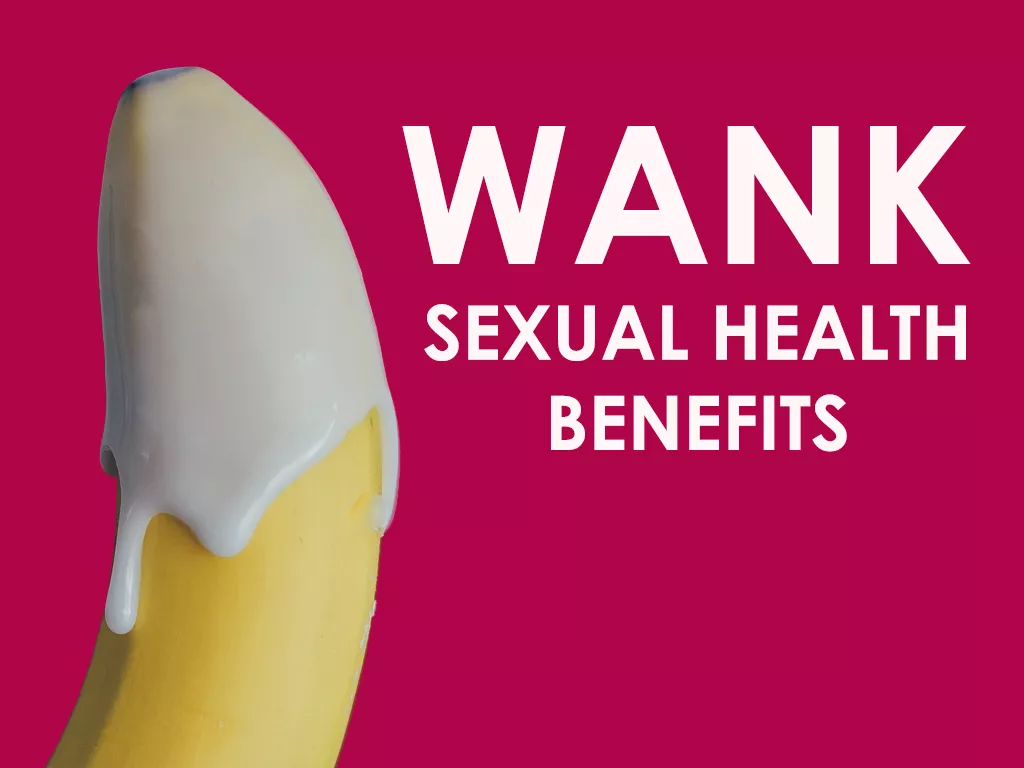30 Masturbation FAQs
3678
Who Says Masturbation's A Taboo? Not In Front of Our Salad!

PULSE Sex Talk | 30 Masturbation FAQs
What's the Deal With Masturbation?
We've all faced those moments when you’re left to your own devices and need a little release. It’s completely normal to feel a bit unsure or even guilty about such lewd activity, but rest assured—PULSE is here to clear things up and debunk any taboos! Masturbation is a natural, healthy part of human sexuality. While scientific research shows it can have a range of benefits, from stress relief to improved sleep. So let’s get ourselves into the Top 30 frequently asked questions about masturbation. And we're sure that by the end of this guide, you’ll be very well-informed pro of this subject, with a better understanding of its role in overall health and well-being!
1) So First Off, What Is Masturbation?
Masturbation is a natural, healthy activity where individuals stimulate their own genitals for pleasure. It’s a natural and fun way to explore your own body, boost your mood, and even improve your sleep. Often misunderstood, it’s a totally normal and beneficial part of human sexuality.
2) Is It Normal for Women to Masturbate?
Masturbation is a normal and healthy activity for everyone. It’s a natural way to explore your body, relieve stress, and experience pleasure. Embracing self-pleasure can lead to better sexual health and self-awareness, making it an important part of overall well-being for all genders.
3) I've Heard So Many Myths About Masturbation. Are They True?
Most of them are not true. Over the years, a lot of people may have felt a bit awkward about masturbation and haven’t quite connected with their own bodies. And with all the myths floating around, it's easy to get confused. But don’t worry—I’m here to clear up the misconceptions and help you break through those barriers. Allow me to set the record straight!
4) MythBusters: Can Masturbation Causes Health Problems?
Studies have shown that masturbation doesn’t cause any physical harm. In fact, research published in JAMA Network Open (2019) highlights that masturbation is a common and healthy behavior. It can even have positive effects on your mental health, like reducing stress and promoting relaxation.
Another study from American Journal of Lifestyle Medicine (2015) on Stress Relief and Masturbation supports this, showing that masturbation is associated with reduced stress levels and improved emotional well-being. Plus, there’s no evidence linking masturbation to physical health problems such as infertility or erectile dysfunction.
Masturbation helps you understand your body on what feels good, leading to better sexual experiences and overall sexual health. Researchs show that this self-awareness can make your sex life overally more satisfying!
5) MythBusters: Can Masturbation Lead to Infertility?
A study published in the Journal of Urology (2004) explored the relationship between masturbation and sperm quality. The researchers found that regular masturbation did not negatively impact sperm count or quality. In fact, they noted that frequent ejaculation, whether through masturbation or sex, can actually help maintain healthy sperm production by flushing out older sperm and promoting the production of newer, healthier sperm.
6) MythBusters: Can Masturbation Lead to Erectile Dysfunction?
Not at all! Masturbation won’t ruin your performance. It’s a normal, healthy activity that doesn’t lead to erectile dysfunction. In fact, understanding your own body can boost your confidence and keep things exciting. So, keep the fun going—your bedroom skills are in good hands!
7) MythBusters: Can Masturbation Make Me Go Blind?
Nope, masturbation won’t turn you into a blind bat! This old myth has no scientific backing at all. Your eyes will stay as sharp as ever ;)
8) MythBusters: Can Masturbation Lead to Premature Ejaculation?
Masturbation doesn’t directly cause premature ejaculation, but if you’re racing through self-love activity too fast , it might translate to quicker exits in the bedroom. Learn to pace yourself, slow down and savor the moment! With a bit of patience and practice, you’ll be a master of it in no time!
This also brings up another interesting subject of "Edging", but we'll come back to that later once we're settled with this FAQ.
9) How Common Should My Masturbation Be?
When it comes to masturbation, there’s no magic number—it really depends on you! Personally, I think the key is finding what works for you and feels right. For some of us, it might be a daily habit, while others might go for weeks without it. The main thing is to ensure it doesn’t interfere with your daily life, relationships, or responsibilities. It’s all about striking that perfect balance for your own comfort and well-being. So let’s find what makes you feel great and keeps you happy!
10) Can I Be Addicted to Masturbation?
Masturbation on its own isn’t addictive—it’s a natural, healthy part of life. While it’s possible for some people to develop unhealthy patterns, it's usually linked to underlying issues like stress or anxiety. The key is moderation and self-awareness. If you find yourself struggling to balance it with daily life or relationships, it might be time to chat with a mental health professional. So, keep it fun and balanced!
11) I'm doing it 5+ times per day, is it too much for a person?
Masturbating 5+ times a day might be a lot for some people, but it’s not necessarily too much. Still, if it’s not interfering with your daily life, work, or relationships, and you’re feeling good, then it’s likely fine. Listen to your body!
12) Toys And Masturbation?
Toys can spice up masturbation, adding new sensations and fun! Whether it's a vibrator, a sleeve, or something else, make sure to keep your toys clean and use them safely. A little variety can go a long way in boosting pleasure, just remember to enjoy responsibly!
13) Can I Get STDs from Masturbation?
It’s a solo show, so no. But if you’re using shared or not-so-clean toys, or touching your nether regions after handling someone else’s fluids, there's a slight risk. Keep your play area clean and personal, and you’ll stay in the clear!
14) Can Masturbation Affect My Psychological Issues?
Masturbation itself doesn’t cause psychological issues, but if it becomes a compulsive behavior or is used to cope with underlying problems like anxiety or depression, it might signal deeper concerns. Studies show that masturbation generally has no negative impact on mental health and can even be beneficial. Please seek professional help if you're struggling with the addiction.
15) How Can I Manage Feelings of Shame Or Guilt About Masturbation?
Feeling shame or guilt about masturbation is common but manageable. Start by reminding yourself that self-pleasure is a natural and healthy part of sexuality. Educate yourself on its benefits and talk openly with trusted friends or professionals. Understanding and acceptance are key to overcoming these negative feelings.
Telephone Numbers for Professional Help:
| Mental Health Hotline | 1667 | Available for mental health support and crisis intervention |
| Samaritans of Thailand | 02-713-6795 | Offers 24/7 support for those in emotional distress or crisis. |
| Thai Red Cross Society | 02-252-0200 | Provides support and resources related to mental health and crisis situations. |
Now we've got those concerns out of the way. Let's get more real into problems that you might potentially run into when masturbating!
Can I Eat My Own Cum?
Yes you can! It’s a natural bodily fluid, and if you’re comfortable with it, there’s no harm in doing so. Just make sure to maintain good hygiene and be mindful of any potential infections or health concerns. So, if you’re curious and it’s something you’re into, go for it—just keep it clean and safe!
Does Eating Pineapple Help Make My Cum Taste Better?
Absolutely, pineapple can add a sweet touch to your cum! Thanks to its natural sugars and special enzymes, munching on pineapple might give your bodily fluids a better taste. While it won’t work miracles, adding pineapple to your diet could make things a bit more delightful. Just remember, a well-rounded diet and staying hydrated are also key to making everything taste great. So, go ahead and indulge in some tropical fruit you can find in Thailand pretty easily hehe.
I Masturbated and Got Cum in My Eyes. What Should I Do?
Oops! If you’ve ended up with cum in your eyes, don’t panic. Just rinse them out with cool water to flush away the cum and ease any irritation. Avoid rubbing your eyes—just let the water do its thing. If your eyes stay red or sore, a gentle eye drop can help, or check in with a healthcare pro if it’s still a bother. A quick rinse and some TLC should get you back to feeling normal in no time!
My Penis Hurts When I'm Wanking
If you're rubbing your little johnny while it's dry, absolutely it's gonna hurt due to heat and friction. Adding in your favorite lotion, oil, or lubricant to help moistening and will make your wanking much more pleasurable and greatly reduce the pain. Trust us, rubbing anything dry won't cause you any good (unless you're trying to start a fire).
Another point is, if you're uncircumcised, and your foreskin's too tight, it could be a condition of "phimosis". And you can fix this easily by gently stretching the foreskin over time. You can do this by slowly pulling it back when washing and holding it for a few seconds. If this is too painful or doesn’t improve, consult a healthcare professional for advice.
I Leak Too Much or Not At All of Pre-cum. Is this Normal?
It is totally normal. Pre-cum is a clear fluid that our bodies produce to lubricate the urethra for a smooth gliding of the sperms and to neutralize acidity from urine. The amount of this clear fluid highly varying to each individuals. This also means your level of arousal, the hornier you are, the more you would produce. But everyone's body is different, unless there is a sudden change or discomfort, there's nothing to be worried about!
Lately, My Hands Are Not Enough
If you're feeling that your masturbation game has gotten dull and no longer satisfy your needs experimenting on new stuff could be a game-changer you were looking for, we suggest you to try:
- Sex Toys
- Lubricants
With various types of lubricants are available in the market, changing it to water-based or silicone-based that has warming or cooling effects can help enhancing your experience.
- Change of Environments or Settings
- Kinks and Fantasy
Engaging your mind to erotic fetishes and fantasies can enhance your physical sensations. Be daring and find one that suits yourself.
Don't forget that it's perfectly normal to seek new ways for your pleasure, because sexual health is an important aspect of your overall well-being.
After I Orgasm, I Experience Heavy Sweating and a Headache. What’s Going On?
Experiencing heavy sweating and a headache after orgasm can be surprising, but it’s not uncommon. During orgasm, your body goes through intense physical exertion, which can lead to sweating and sometimes trigger a headache. This might be due to increased heart rate, muscle contractions, or changes in blood flow. To manage this, make sure you’re staying hydrated, especially if you’re sweating a lot. Also, consider cooling down and relaxing after sex. If these symptoms persist or are particularly bothersome, it might be a good idea to check in with a healthcare provider to rule out any underlying issues and get tailored advice.
I Cannot Reach Orgasm Through Masturbating Anymore
This is actually pretty common among folks and can be addressed to identify the cause in many ways. I give you some insights and suggestions that might help.
- Physical Factors: Such as change of your genital sensitivity and health conditions.
- Psychological Factors: Stress and anxiety are usually the main culprits.
- Habitual Factor: By doing the same things over and over again can reduce the excitement and make it more difficult to reach the orgasm.
I Cannot Reach Orgasm Through Sex Anymore
This is also common and can be happening to anyone, especially to those who excessively masturbates and are desensitized due to overuse and your genital becomes accustomed to a specific type of stimulation. Making other forms of stimulation, sexual interecourse, less effective. Try reducing the frequency, increase the amount of time spent on foreplay and most importantly, openly talk of the concern with your partner. After all, communication is key.
I Think I Might Be Hypersexual By Masturbating?
Hypersexuality' -- Defined by excessive sexual thoughts, urges, or behaviors that feel out of control. It can include frequent masturbation, a high frequency of sexual encounters, or persistent engagement in sexual fantasies which can interfere with daily life, work, relationships, and your life in general.
Masturbation can be a way to relieve stress, but it might create a habit of seeking that pleasure over and over. Over time, you might find yourself doing it more often to feel satisfied, which can mess with your daily life and relationships. To spot hypersexuality, think about how often you’re focused on sex and if it feels out of control or causes problems. Managing it means setting some limits, finding other things to do, talking to a therapist, practicing mindfulness, and getting support from friends or groups. If it’s still a problem or affects your mental health, getting professional help is a good move.
I Want to Show Off My Masturbation
Ahh, so we've come to this Exhibitionism. Basically, it’s when someone enjoys showing off their body, especially their private parts, to people who aren’t expecting it. This can give them a big thrill and make them feel really excited. But doing this without someone’s consent is not cool and can get you into serious trouble with the law. However, if it’s done with a partner who’s into it or in certain adult communities, it can be a fun and adventurous way to express yourself. If you find this becoming a bit too much or taking over your life, talking to a therapist or joining a support group can help. It’s important to keep things fun but also respectful and within boundaries.
I Want to Masturbate with Strange Objects/Animals
Noooooo! It’s really important to keep your safety in mind when it comes to sexual activities. Masturbating with objects that aren't designed for sexual use can lead to injury or infections. Always use sex toys that are specifically made for sexual pleasure and are body-safe. When it comes to animals, it's crucial to understand that involving animals in sexual activities is not only harmful and unethical but also illegal. Animals cannot consent and can be seriously hurt or traumatized. If you’re feeling the urge to explore unusual interests, it might be helpful to talk to a mental health professional or a sex therapist. They can offer support and guidance to help you understand and navigate your feelings in a safe and healthy way. Your safety and the well-being of others are paramount.
My Family Members/Friends Saw Me Masturbating! What Should I Do?
This can be embarrassing but I truly understand! Stay calm and address the situation by having a private conversation if you're comfortable, apologize if necessary, and set clear boundaries for privacy in your space. It’s natural to feel embarrassed, but talking to a trusted friend or counselor can help manage your feelings. Focus on moving past the incident and maintaining your privacy going forward.
I Want to Talk Openly of This But My Friends Don't Understand
If your friends aren’t quite on the same page or find the topic a bit awkward, don’t sweat it! It might be a good idea to seek out a support group or chat with a friendly therapist who’s open to these discussions. Everyone’s got their own comfort zone, so finding folks who are cool with open conversations can make things easier. Remember, you’ve got options, and it's all about finding the right space to talk it out without any awkward vibes!
My Parents Prohibited Me From Masturbating. What Should I Do?
If your parents have prohibited you from masturbating, it's important to handle the situation with care and respect. First, try to understand their perspective—often, these rules come from their concerns or beliefs. If you feel comfortable, have an open and honest conversation with them about your feelings and why you think their prohibition might not be necessary. Remember, masturbation is a normal part of human sexuality and is generally considered healthy. If discussing it with your parents feels too difficult or isn’t possible, consider talking to a trusted adult, counselor, or therapist who can offer support and help you navigate this sensitive issue.







